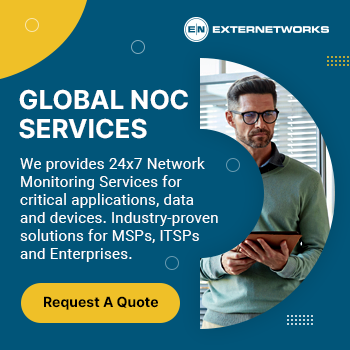A Comparison of In-House IT Support vs Managed IT Services

Are you running a business or organization that needs to manage its technology? You must make a critical decision on how to approach IT infrastructure management and provide technical support. What’s the best way to provide IT services for your business? Is it better to have an in-house IT department, or should you outsource with managed IT services?
Today, businesses rely heavily on technology to stay competitive. A reliable IT infrastructure is essential to reducing the risks associated with security breaches, data loss, and operational disruptions. In-house IT support has been the traditional model, but many organizations are switching to managed IT services.
There are numerous advantages and disadvantages of both options that need to be considered when deciding between in-house or managed IT services for your organization. This article will discuss these two approaches and provide an unbiased comparison of their relative merits and drawbacks.
In-House IT Support
In-house IT support is the traditional approach to managing a business’s IT needs. This involves hiring an in-house team of IT professionals responsible for all aspects of the company’s technology, from hardware and software maintenance to network security and data backup. The advantage of this approach is that it allows organizations to have complete control over their IT systems. This also allows for more direct communication between the IT staff and the business.
Pros
Complete control over IT operations
In-house IT support allows for complete control over the IT operations of a business. This means that all decisions regarding the technology used, the security protocols in place, and other aspects of the IT infrastructure are made by the company itself. This can be beneficial for businesses with specific needs or requiring a high level of customization.
Familiarity with internal systems and processes
When a business opts for in-house IT support, the team is already familiar with the internal systems and processes of the company. This can be beneficial as it allows for faster problem resolution and more efficient operations.
Tailored support to specific needs
This means that businesses can customize their IT infrastructure to meet their exact requirements. This can be beneficial for businesses that require a high level of customization or have specific needs that need to be met.
Cons
High cost of hiring and maintaining a full-time IT staff
The cost of hiring and maintaining a full-time IT staff is high. This includes the IT personnel’s salaries and any additional costs associated with training and certifications. Additionally, if the company needs the necessary resources or expertise to handle specific tasks, it may need to outsource those services at an additional cost.
Difficulty in staying current with the latest technology and industry trends
As technology advances, IT personnel must stay up to date on the latest developments to provide effective support. This can be a challenge for companies that need more resources or expertise to keep up with these changes. It can also be challenging to find qualified personnel knowledgeable about the newest technologies.
Limited resources and expertise
In-house IT support can be time-consuming and require significant resources. Companies must dedicate personnel to managing the IT infrastructure, which can take away from other important tasks. Also, resolving issues or problems with the system can take a long time as the IT staff may need more expertise or resources to address them.
Managed IT Services
On the other hand, managed services involve outsourcing IT tasks to a third-party provider. This provider is responsible for managing and maintaining the company’s IT infrastructure and providing technical support when needed. Managed IT services are a great way to ensure that your business’s IT infrastructure runs smoothly and efficiently. The advantage of this approach is that it allows organizations to offload much of the workload associated with managing an IT system, freeing up resources and personnel to focus on other areas of the business.
Pros
Cost savings
Managed IT services can help businesses save money in various ways. Businesses can avoid the costs associated with hiring and training in-house IT staff. Managed IT services providers often have access to more cost-effective technology solutions than individual companies could afford on their own. This means that businesses can benefit from the latest technology without having to invest heavily in hardware and software.
Access to expert knowledge
Managed IT service providers have the expertise and experience to provide businesses with the best possible IT solutions. They can offer advice on the most effective technology for a particular business, as well as provide support and maintenance when needed. This can help businesses save time and money by avoiding costly mistakes and ensuring that their IT systems run optimally.
Proactive maintenance
Managed IT service providers can help businesses avoid potential problems by proactively monitoring their systems and providing regular maintenance. This helps to ensure that any issues are identified and addressed quickly, reducing downtime and preventing costly repairs or replacements.
Scalability
Managed IT services can help businesses scale their IT infrastructure quickly and easily. This is especially beneficial for businesses that are growing rapidly or need to adjust their IT systems to meet changing needs. With managed IT services, businesses can add or remove resources as needed without investing in new hardware or software.
Enhanced security
Managed IT service providers can help businesses protect their data and systems from cyber threats. They can provide businesses with the latest security solutions, such as firewalls and antivirus software, as well as monitoring their systems for any suspicious activity. This helps to ensure that businesses are protected from malicious attacks and data breaches.
Cons
Less control over IT operations
When you outsource your IT operations to a managed service provider, you essentially give up control of your IT infrastructure’s day-to-day management and maintenance. This means that you will no longer have direct access to the hardware and software components that make up your network and the ability to make changes or adjustments on your own. As a result, it can be difficult to troubleshoot issues or make changes to your IT environment without the help of the managed service provider.
Dependence on an external provider
When you outsource your IT operations to a managed service provider, you rely on them for all your IT needs. This means that if something goes wrong with your network or systems, it is up to the managed service provider to fix it. This can be a major disadvantage if the provider is not reliable or responsive.
Some customization may be limited
When you outsource your IT operations to a managed service provider, you may find that some of the customization options available are limited. This can be especially true when it comes to customizing software applications or integrating new hardware components into your network. The managed service provider may not have the expertise or resources to provide the level of customization you need.
Factors to consider when choosing between in-house IT support and Managed IT Services
Business size and complexity
The size and complexity of your business will be a major factor in determining whether you should opt for in-house IT support or managed IT services. An in-house IT team may be the best option if your business is small and relatively simple. On the other hand, if your business is large and complex, then managed IT services may be more suitable.
IT budget and resources
The budget and resources available for IT will also be a major factor in deciding between in-house IT support and managed IT services. An in-house team may be the best option if you have the hiring budget. However, managing IT services may be more cost-effective if your budget is limited.
Security and compliance requirements
Depending on the industry you are in, there may be specific security and compliance requirements that must be met. If this is the case, then managed IT services may be the best option as they are more likely to have the necessary expertise and resources to meet these requirements.
Need for specialized skills and knowledge
Depending on your business needs, you may require specialized skills and expertise that can only be provided by an in-house IT team or managed IT services. If this is the case, you should carefully consider which option best suits your business needs.
Conclusion
When deciding between in-house IT support and managed IT services, businesses should consider their budget, technical expertise, and scalability needs. For businesses with limited budgets or technical expertise, managed services may be the best option as they can provide a more comprehensive solution at a lower cost. For businesses with larger budgets and more technical expertise, in-house IT support may be the better option as it can provide a more personalized experience. Ultimately, the best option will depend on the individual needs of each business.
No matter which option you choose, it is important to ensure that you are working with a reputable provider who can provide the necessary support and services. It is also vital to ensure that the provider has the experience and expertise to meet your specific needs. Additionally, it is important to have a clear understanding of the terms and conditions of the agreement before signing any contracts.
Finally, it is important to keep in mind that both in-house IT support and managed IT services have their own set of pros and cons, so it is important to weigh the options carefully before making a decision.
Once you have decided which option is best for your business, it is important to ensure that you get the most out of your IT support. This includes ensuring that your provider meets all of your needs and provides the necessary support and services. Additionally, keeping up with any changes or updates to your IT infrastructure is important to ensure everything is running smoothly.
Why Choose Us
ExterNetworks is a leading managed IT services provider that offers comprehensive solutions for businesses of all sizes. With our team of experienced professionals, we provide businesses with the expertise and resources necessary to keep their systems running smoothly and efficiently. We understand that every business is unique and has different IT needs, so we offer customized solutions tailored to meet your specific requirements. We offer a wide range of services, including cloud computing, network security, data backup and recovery, system monitoring, and more. Our team is dedicated to providing businesses with the best possible service and support, so you can rest assured that your IT infrastructure is in good hands.
Also Read
What are Managed IT Services and Why do Businesses Need Them?
Common IT Challenges That Managed IT Services Can Help Solve
The Benefits of Partnering with a Managed IT Service Provider
How to Choose the Right Managed IT Service Provider for Your Business
to Contact Us




